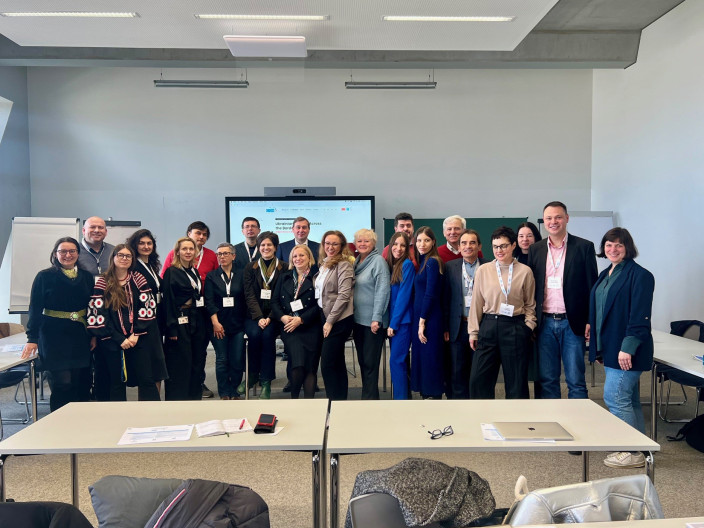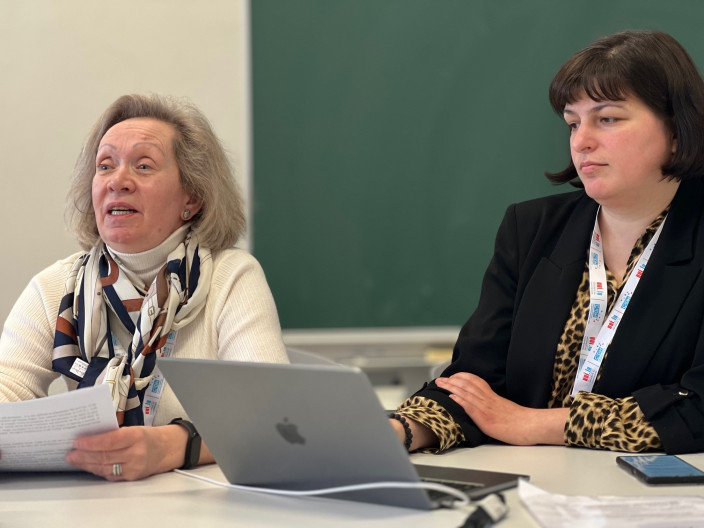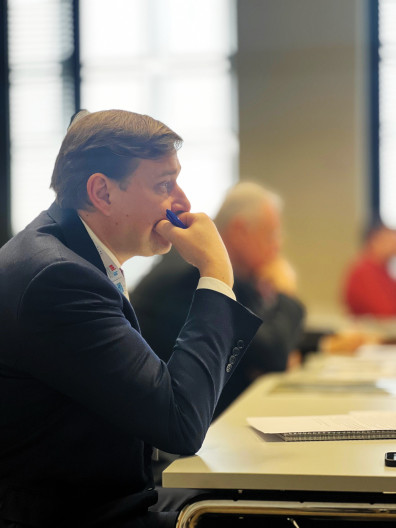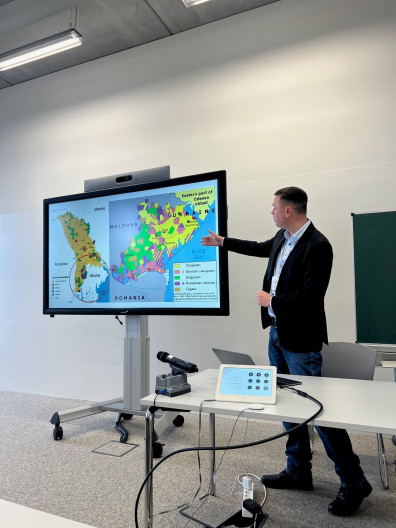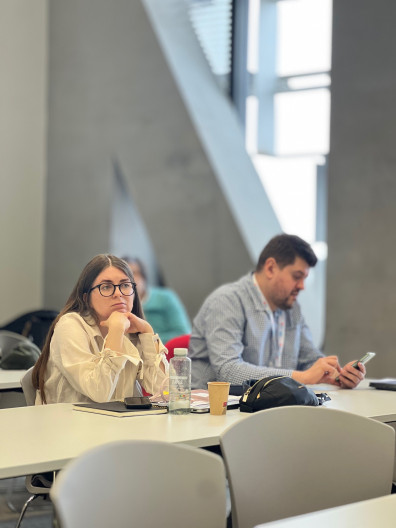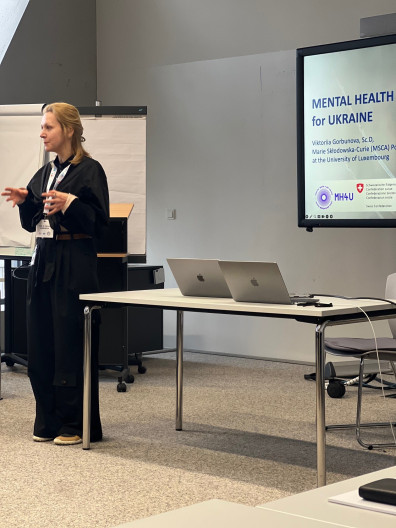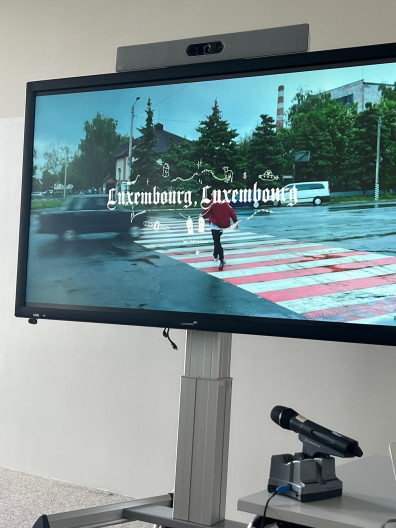As part of the joint project (Un)Disciplined: Pluralizing Ukrainian Studies – Understanding the War in Ukraine (abbreviated UNDIPUS), interdisciplinary approaches to Ukrainian studies are being explored at the universities of Greifswald, Gießen, and Regensburg. This project is funded by the Federal Ministry of Education and Research (BMBF) and aims to diversify the understanding of the current situation in Ukraine. In addition to analyzing developments, attention is also focused on neighboring states, especially Poland and the Republic of Moldova. The thematic focus lies on critically examining cross-border societal dynamics, the impact of the war on Ukrainian society, and pluralistic identity discourses. Equally central to the project is networking Ukrainian studies and providing new impulses for its academic establishment. Since the Ukraine. Collecting. Recording (U-CORE) project recently started at the University of Luxembourg, it was considered an excellent opportunity to organize a joint scientific conference under the title Ukrainian Studies Across the Borders, which already implies multinational approaches to current issues surrounding Ukraine. Therefore, approaches from Luxembourg, Germany, and Ukraine were synthesized at this event.
In the first thematic section moderated by Vitalii Klymchuk (Luxembourg), two contributions on psychology were presented. To start, Roman Dubasevych (Greifswald) provided an overview of the metaphorical aspects of war events and demonstrated how heroism is constructed. His presentation titled From Zero to Hero: Masculinity and War in Ukraine also explored the mythological forms currently activated in Ukrainian discourses. The second presentation titled Mental Health for Ukraine focused on the complex issue of mental health. Viktoria Gorbunova (Luxembourg) described how this phenomenon can be targeted and theorized for different groups of people.
The second section, under the direction of Alexey Aleksandrov (Luxembourg), was dedicated to the construction of identities and narratives of freedom. Ksenia Fedorova (Luxembourg) first discussed Delineating a Digital-Scape: A Critical Practice of Freedom during the Russian War in Ukraine. In her dissertation project, she examines the concept of freedom and the role of the internet in times of war, analyzing various databases. Olga Plakhotnik (Greifswald) then elucidated the interplay between self-determination and state institutions. In her presentation (Sexual Citizenship and Borders-Crossing), she characterized citizenship as a complex and dynamic process specific to LGBT+ communities in Ukraine, expanding beyond borders as some fled before the war to settle in the EU.
Kataryna Zakharchuk (Luxembourg) moderated the third section, which focused on the digitization of Ukrainian studies. Two projects located at the University of Luxembourg were presented within this framework. Machteld Venken (Luxembourg) discussed the Architecture of the Project “Ukraine. Collecting. Recording” (U-CORE), presenting the initial research activities of the project, which began in January 2024 and documents migration stories from Ukraine. Inna Ganschow (Luxembourg) then spoke about the VYSH-project: AI Generated Embroideries for Ukrainian Dancing Costumes. In this project, involving both the contributor and the section moderator, Ukrainian costumes were designed using AI and are now used in Luxembourg to promote Ukrainian culture.
The second day of the conference began with a section on post-industrialism, led by Oleksiy Kiryukhin (Luxembourg). Oleksandr Zabirko and Halina Strzempa (both from Regensburg) presented a contrasting perspective on literary production in Donbas and Upper Silesia (Exploring Anthropocene Perspectives on the Donbas and Upper Silesia), exemplifying novellas from Ukraine and Poland that address the ecological consequences of industrialization and the cultural achievements of both regions. Alexander Chertenko (Gießen) then examined the portrayal of Ukraine in Poland. In his presentation Voices from the Periphery: Mapping Ukraine after 2014 in Polish Books of Interviews, he argued that a country with historical traumas of territorial loss tends to generate restorative discourses in times of war, thereby styling itself as an "Empire".
The concluding section was dedicated to themes in linguistics and history and was led by Olga Kryvets (Luxembourg). Martin Henzelmann (Greifswald) spoke on Minority Languages and Education in Bessarabia, outlining how minority languages in the present-day Republic of Moldova and the extreme southwest of Ukraine are incorporated into school curricula. This was followed by the presentation by Iryna Pogrebynska (Luxembourg) on the issue of addressing the narratives of the Holocaust in Luxembourg and Ukraine (Ukrainian-Luxembourg Historical Research: Invariance of Subjects – Difference in Approaches. A Case Study). Despite progress in addressing these narratives, she argued that there is still a need, particularly in digital processing of historical data. The section was concluded with a presentation by Zhanna Serdiuk (Luxembourg), documenting the life and work of Andriy Melnyk (Andriy Melnyk: Additional Features to the Historical Portrait). The presence of this Ukrainian military officer and politician in Luxembourg (1946-1964) presents comprehensive research potential.
The aim of the conference was to discuss diversified approaches to the Ukrainian cultural landscape, critically evaluate multiple explanations for the current war situation and its societal consequences, address the interconnections between Ukraine and its neighbors, and intensify academic exchange between universities in Germany and Luxembourg. Researchers who had to leave Ukraine and are now working abroad were explicitly involved in shaping the program to ensure the broadest possible access to the overall issue.
Written by Martin Henzelmann



